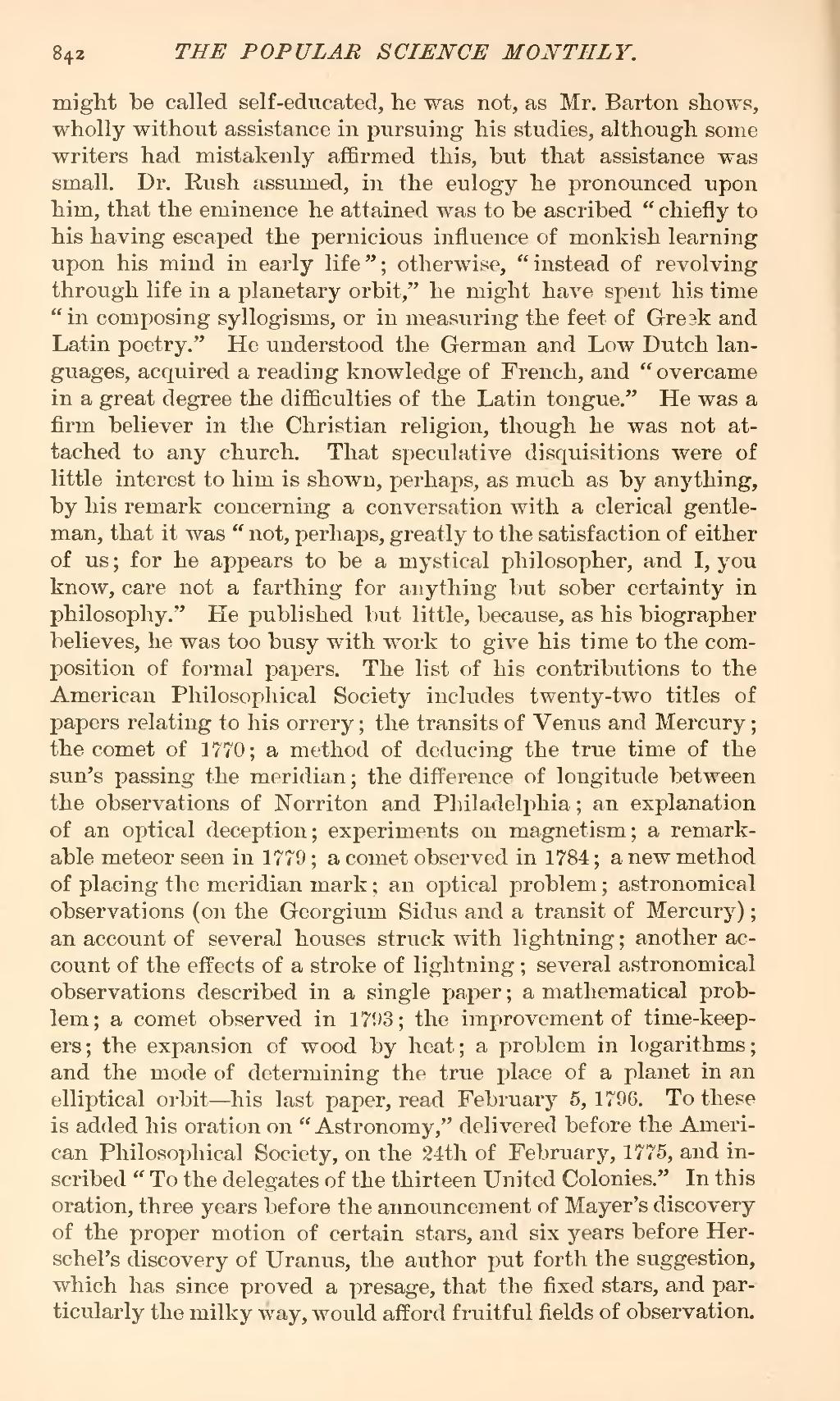might be called self-educated, lie was not, as Mr. Barton shows, wholly without assistance in pursuing his studies, although some writers had mistakenly affirmed this, but that assistance was small. Dr. Rush assumed, in the eulogy he pronounced upon him, that the eminence he attained was to be ascribed "chiefly to his having escaped the pernicious influence of monkish learning upon his mind in early life"; otherwise, "instead of revolving through life in a planetary orbit," he might have spent his time "in composing syllogisms, or in measuring the feet of Greak and Latin poetry." He understood the German and Low Dutch languages, acquired a reading knowledge of French, and "overcame in a great degree the difficulties of the Latin tongue." He was a firm believer in the Christian religion, though he was not attached to any church. That speculative disquisitions were of little interest to him is shown, perhaps, as much as by anything, by his remark concerning a conversation with a clerical gentleman, that it was "not, perhaps, greatly to the satisfaction of either of us; for he appears to be a mystical philosopher, and I, you know, care not a farthing for anything but sober certainty in philosophy." He published but little, because, as his biographer believes, he was too busy with work to give his time to the composition of formal papers. The list of his contributions to the American Philosophical Society includes twenty-two titles of papers relating to his orrery; the transits of Venus and Mercury; the comet of 1770; a method of deducing the true time of the sun's passing the meridian; the difference of longitude between the observations of Norriton and Philadelphia; an explanation of an optical deception; experiments on magnetism; a remarkable meteor seen in 1779; a comet observed in 1784; a new method of placing the meridian mark; an optical problem; astronomical observations (on the Georgium Sidus and a transit of Mercury); an account of several houses struck with lightning; another account of the effects of a stroke of lightning; several astronomical observations described in a single paper; a mathematical problem; a comet observed in 1793; the improvement of time-keepers; the expansion of wood by heat; a problem in logarithms; and the mode of determining the true place of a planet in an elliptical orbit—his last paper, read February 5, 1796. To these is added his oration on "Astronomy," delivered before the American Philosophical Society, on the 24th of February, 1775, and inscribed "To the delegates of the thirteen United Colonies." In this oration, three years before the announcement of Mayer's discovery of the proper motion of certain stars, and six years before Herschel's discovery of Uranus, the author put forth the suggestion, which has since proved a presage, that the fixed stars, and particularly the milky way, would afford fruitful fields of observation.
Page:Popular Science Monthly Volume 36.djvu/862
842
THE POPULAR SCIENCE MONTHLY.
